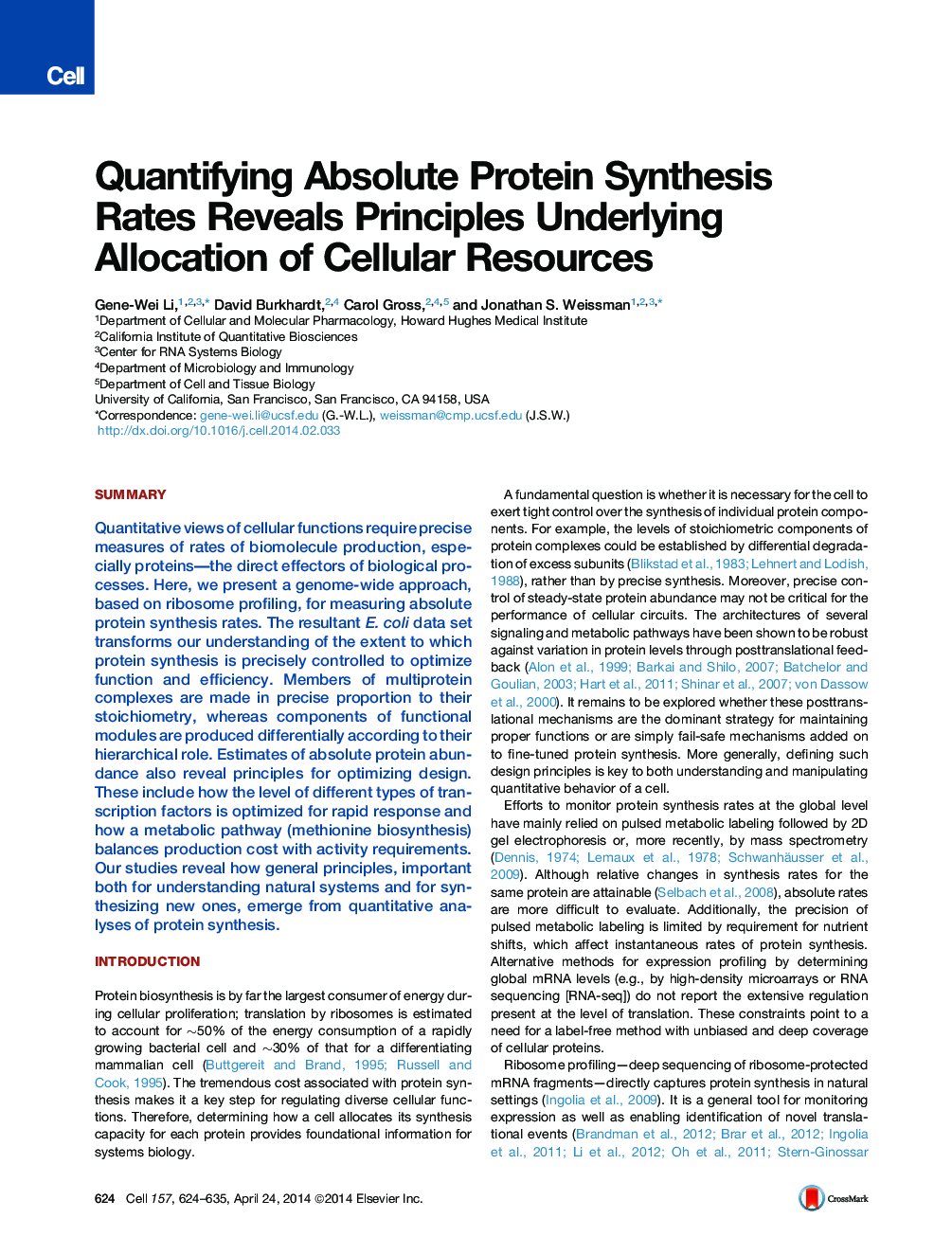| Article ID | Journal | Published Year | Pages | File Type |
|---|---|---|---|---|
| 2035539 | Cell | 2014 | 12 Pages |
•Global measurement for absolute rates of protein synthesis using ribosome profiling•Majority of protein complexes are precisely made in proportion to stoichiometry•Rates of synthesis for individual proteins are optimized for growth and function•Copy number estimates for stable proteins provide basis for quantitative biology
SummaryQuantitative views of cellular functions require precise measures of rates of biomolecule production, especially proteins—the direct effectors of biological processes. Here, we present a genome-wide approach, based on ribosome profiling, for measuring absolute protein synthesis rates. The resultant E. coli data set transforms our understanding of the extent to which protein synthesis is precisely controlled to optimize function and efficiency. Members of multiprotein complexes are made in precise proportion to their stoichiometry, whereas components of functional modules are produced differentially according to their hierarchical role. Estimates of absolute protein abundance also reveal principles for optimizing design. These include how the level of different types of transcription factors is optimized for rapid response and how a metabolic pathway (methionine biosynthesis) balances production cost with activity requirements. Our studies reveal how general principles, important both for understanding natural systems and for synthesizing new ones, emerge from quantitative analyses of protein synthesis.
Graphical AbstractFigure optionsDownload full-size imageDownload high-quality image (234 K)Download as PowerPoint slide
